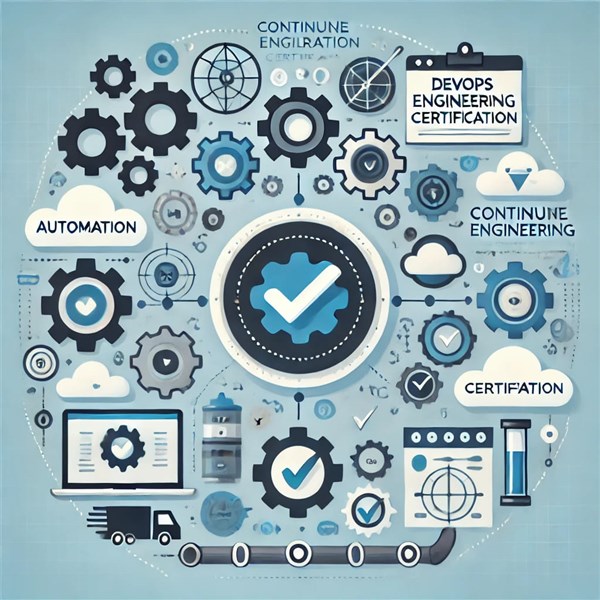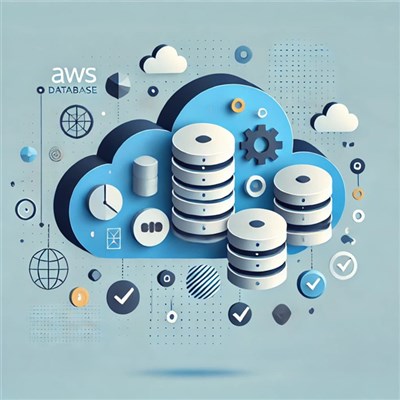
In the modern IT landscape, DevOps Engineering is reshaping the way businesses deliver software. The demand for certified DevOps Engineers is soaring, as they are instrumental in fostering a collaborative environment between the development and operations teams, thus speeding up the software development process. However, earning a DevOps Engineering Certification is not just about theoretical knowledge. It requires extensive hands-on experience to fully understand and apply DevOps principles in real-world scenarios.
In today’s fast-paced tech landscape, the demand for skilled DevOps professionals is growing exponentially. As organizations strive for efficiency and agility, they are increasingly looking for individuals who can bridge the gap between development and operations. This is where DevOps engineering certification comes into play. However, one of the most critical components of successful certification and, ultimately, a career in DevOps is hands-on experience. In this blog, we will explore the value of practical experience and lab work in the DevOps certification process and why it is essential for your career.
What is DevOps?
Before diving into the significance of hands-on experience, it's essential to understand what DevOps is. DevOps is a cultural and technical movement aimed at enhancing collaboration between development (Dev) and operations (Ops) teams. It emphasizes automation, continuous integration (CI), continuous deployment (CD), and monitoring, enabling organizations to deliver software faster and more reliably.
DevOps combines various methodologies and practices, including Agile development, IT service management, and Lean manufacturing, to create a more efficient workflow. The ultimate goal is to improve collaboration, increase efficiency, and deliver higher quality software.
The Role of Certification in DevOps
DevOps engineering certification is designed to validate the skills and knowledge required to implement DevOps practices in real-world scenarios. Certification programs often cover a range of topics, including:
- Continuous Integration and Continuous Deployment (CI/CD)
- Infrastructure as Code (IaC)
- Configuration Management
- Monitoring and Logging
- Cloud Computing
While theoretical knowledge is crucial, hands-on experience allows you to apply this knowledge in practical situations, making it invaluable for your career.
Why Hands-On Experience Matters
1. Application of Theory
One of the most significant benefits of hands-on experience is the ability to apply theoretical knowledge in real-world situations. During your studies, you will learn various concepts and tools, such as Docker, Kubernetes, Jenkins, and Terraform. However, understanding how these tools work in isolation is vastly different from using them to solve actual problems.
For instance, while you may learn about containerization in a classroom setting, gaining hands-on experience with Docker and Kubernetes will help you understand:
- How to configure containers for specific applications.
- Networking and storage options for containers.
- Deployment strategies in different environments.
Practical experience helps reinforce theoretical concepts and solidify your understanding, making you a more effective DevOps engineer.
2. Skill Development
DevOps is a multidisciplinary field that requires a variety of skills, including:
- Scripting and Programming: Proficiency in languages like Python, Bash, or Ruby is crucial for automating tasks.
- Cloud Platforms: Familiarity with cloud services such as AWS, Azure, or Google Cloud is essential for deploying applications.
- Monitoring and Logging: Understanding how to set up and interpret monitoring tools to ensure application performance and reliability.
Hands-on experience allows you to develop and refine these skills. Through lab work and practical projects, you will gain valuable insights into troubleshooting, debugging, and optimizing applications, which are critical components of a DevOps role.
3. Real-World Problem-Solving
DevOps professionals often face complex challenges that require innovative solutions. Hands-on experience equips you with the problem-solving skills needed to tackle real-world issues effectively.
For example, you may encounter scenarios such as:
- A failed deployment: Understanding how to roll back to a stable version and analyze logs to identify the root cause.
- Performance bottlenecks: Implementing monitoring tools to pinpoint issues and optimize resource allocation.
By engaging in hands-on projects and simulations, you will learn how to navigate these challenges confidently, making you a more effective team member in your future job.
4. Familiarity with Tools and Technologies
The DevOps landscape is populated with various tools and technologies, each designed to facilitate specific tasks. Hands-on experience provides you with the opportunity to become familiar with these tools, including:
- CI/CD Tools: Jenkins, GitLab CI, CircleCI
- Containerization: Docker, Kubernetes
- Configuration Management: Ansible, Puppet, Chef
- Monitoring: Prometheus, Grafana, ELK Stack
Being proficient in these tools will not only enhance your resume but also prepare you to work effectively within a DevOps environment. Many employers look for candidates who can hit the ground running, and hands-on experience gives you the confidence to do just that.
5. Enhanced Collaboration Skills
DevOps emphasizes collaboration and communication between development and operations teams. Through hands-on experience, you will learn how to work effectively in cross-functional teams, which is crucial for successful DevOps implementation.
Working on group projects, participating in hackathons, or engaging in peer programming can help you develop interpersonal skills, such as:
- Effective communication: Learning how to articulate technical concepts to non-technical stakeholders.
- Conflict resolution: Navigating differing opinions within a team to reach a consensus.
- Collaborative problem-solving: Working with team members to tackle complex challenges.
These skills are vital in a DevOps environment, where teamwork and collaboration are essential for success.
Ways to Gain Hands-On Experience
1. Lab Work and Simulations
Many certification programs offer lab work or simulations as part of their curriculum. These environments allow you to practice using tools and technologies in a controlled setting, mimicking real-world scenarios. Take advantage of these resources to gain practical experience.
2. Personal Projects
Building your projects is an excellent way to apply your skills and demonstrate your abilities to potential employers. Consider creating a personal project that utilizes DevOps principles, such as setting up a CI/CD pipeline for a web application hosted on a cloud platform.
3. Open Source Contributions
Contributing to open-source projects is a fantastic way to gain hands-on experience while collaborating with other developers. Platforms like GitHub offer a wealth of projects that welcome contributions. By working on open-source initiatives, you can enhance your skills and build a portfolio to showcase your work.
4. Internships and Co-op Programs
Internships and co-op programs provide real-world experience in a professional environment. These opportunities allow you to work alongside experienced professionals and gain exposure to the challenges and responsibilities of a DevOps role.
5. Online Labs and Training Platforms
Many online learning platforms offer hands-on labs and exercises to help you practice your skills. Websites like A Cloud Guru, Pluralsight, and Coursera provide interactive learning experiences that simulate real-world scenarios.
Conclusion
In conclusion, hands-on experience is an essential component of the DevOps certification process. While theoretical knowledge is necessary, practical application allows you to reinforce your understanding, develop critical skills, and prepare for real-world challenges. As the demand for skilled DevOps professionals continues to rise, those with a solid foundation of hands-on experience will be better equipped to succeed in this dynamic field.
Investing time in lab work, personal projects, open-source contributions, and internships will not only enhance your knowledge but also boost your confidence and employability. As you embark on your journey to obtain your DevOps engineering certification, remember that the hands-on experience you gain will be invaluable to your career in the long run.
At Koenig Solutions, a leading IT training Company, we understand the importance of hands-on experience in DevOps Engineering. Our training courses are designed to provide both theoretical knowledge and practical experience. Our expert instructors guide you through real-world projects, helping you gain a deep understanding of DevOps principles and tools.
In conclusion, hands-on experience plays a pivotal role in earning a DevOps Engineering Certification. It not only enhances your understanding of DevOps principles but also makes you job-ready. At Koenig Solutions, we strive to provide the best training experience, equipping you with the skills and knowledge required to excel in your career as a DevOps Engineer.







COMMENT